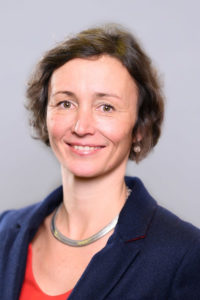
On 23 June, Anna-Katharina Hornidge, Director of the German Development Institute / Deutsches Institut für Entwicklungspolitik (DIE), addressed the General Assembly of the Working Group on Global Responsibility, the umbrella organisation of development and humanitarian organisations in Austria. The event focused on the impact of the COVID-19 pandemic on the future of development policy.
In her statement, Anna-Katharina Hornidge referred to a proposal made by Horst Köhler, former President of Germany, in 2017 to understand development policy as interdependence policy. What does close, mutual interdependence mean under the current conditions? What does it mean for a policy that is neither based on fear of the neighbour nor on the conviction that we want to help our neighbour as a much stronger partner – but for a policy that is to be understood as a structural policy for international cooperation that makes the global common good possible?
Such a development policy, according to Hornidge, should focus on three areas in particular: (a) the cultivation and expansion of transregional and global levels of understanding, including the active containment of nationalisms in dealing with the pandemic in the short and medium term, (b) the reduction of social inequalities, the expansion of health and education systems in the medium-term promotion of social crisis resilience, as well as (c) the consistent pursuit of the transformation of our production systems and consumption patterns towards a sustainable use of the resources of our planet, and as a precautionary measure with regard to future crises, which, similar to the current one, stem from the imbalance between man and nature.
On 24 June, Anna-Katharina-Hornidge gave an input to an online workshop on “COVID 19 and the development policy work of NRW actors”, jointly organized by the One World Network NRW and the State Chancellery of North Rhine-Westphalia. The workshop focused on the question of the extent to which the scientific landscape of North Rhine-Westphalia can contribute to the development policy measures of the state and in cooperation with civil society actors, with a special focus on the partner country Ghana. This was discussed by Ms Hornidge along the development policy guidelines of the State of North Rhine-Westphalia. She referred to DIE’s work at the interface between science and politics, also in the support of South-South cooperation in the context of Think Tanks 20 (T20), a network of research institutes and think tanks from the G20 countries, as well as in the context of the Bonn Alliance for Sustainability Research.

Schreibe einen Kommentar